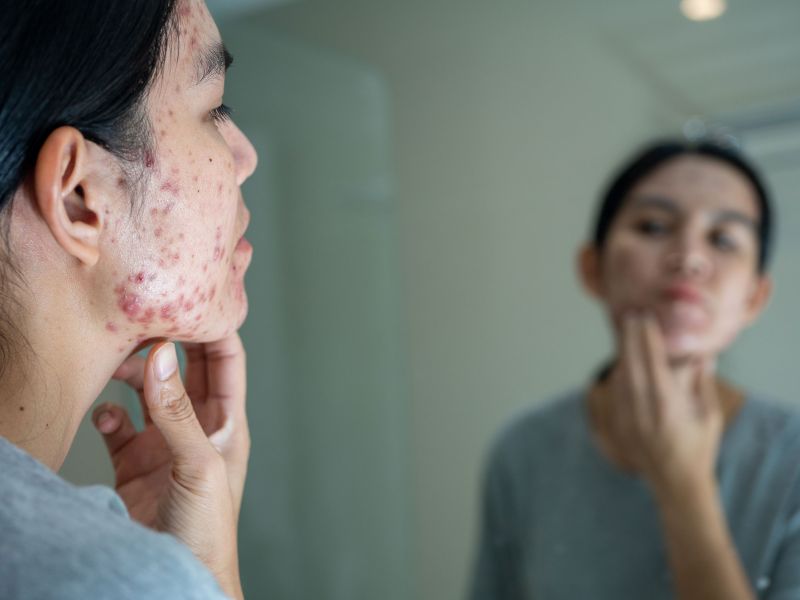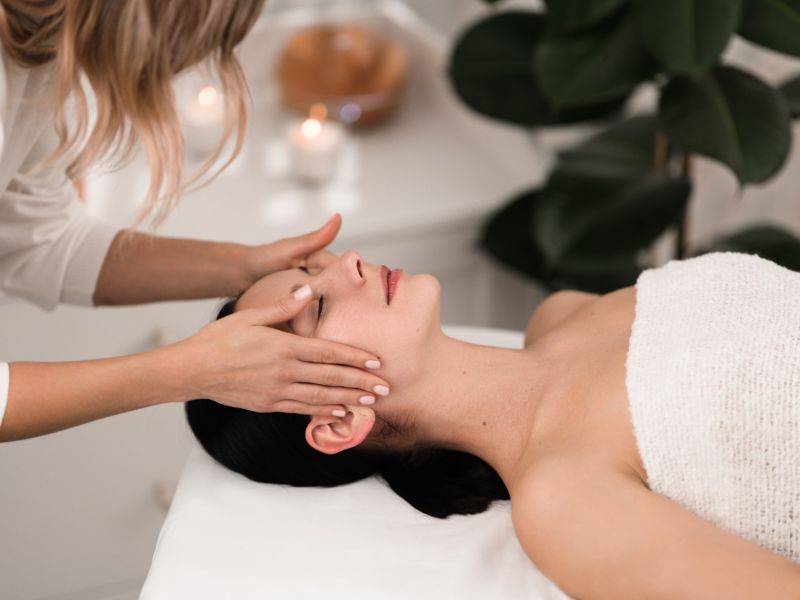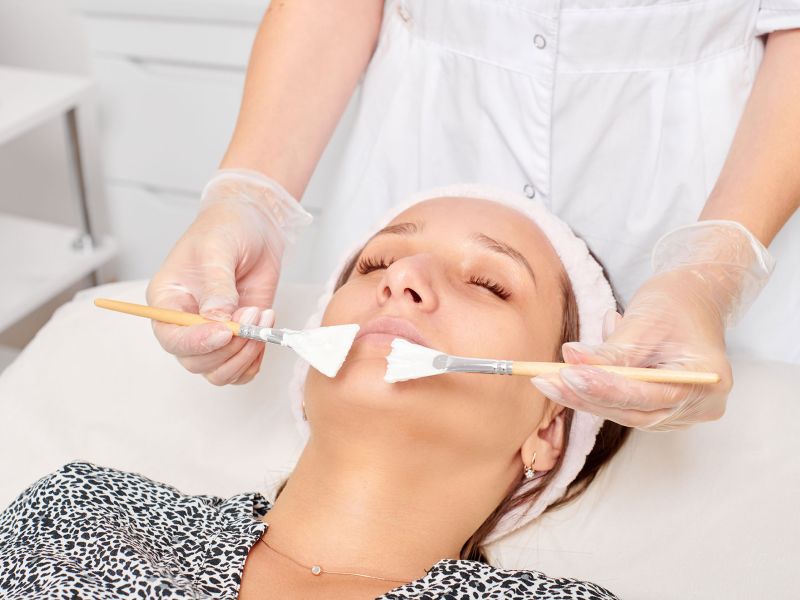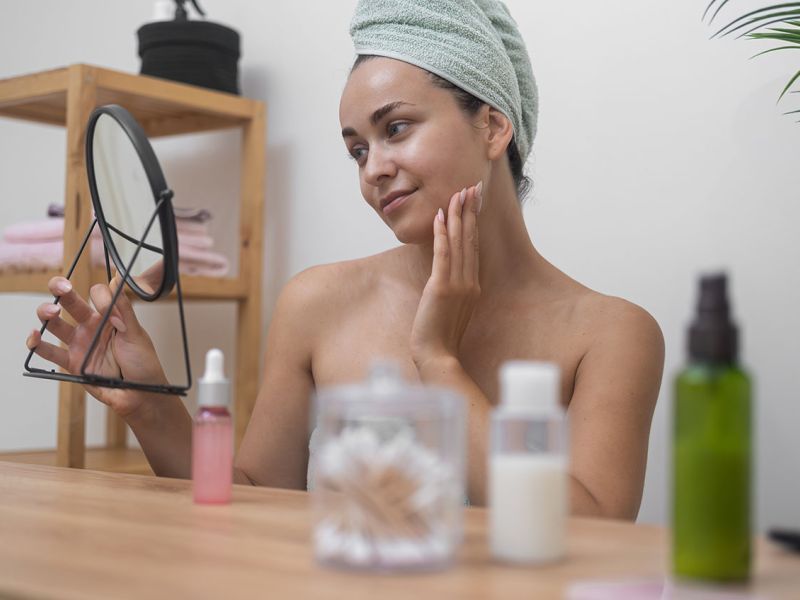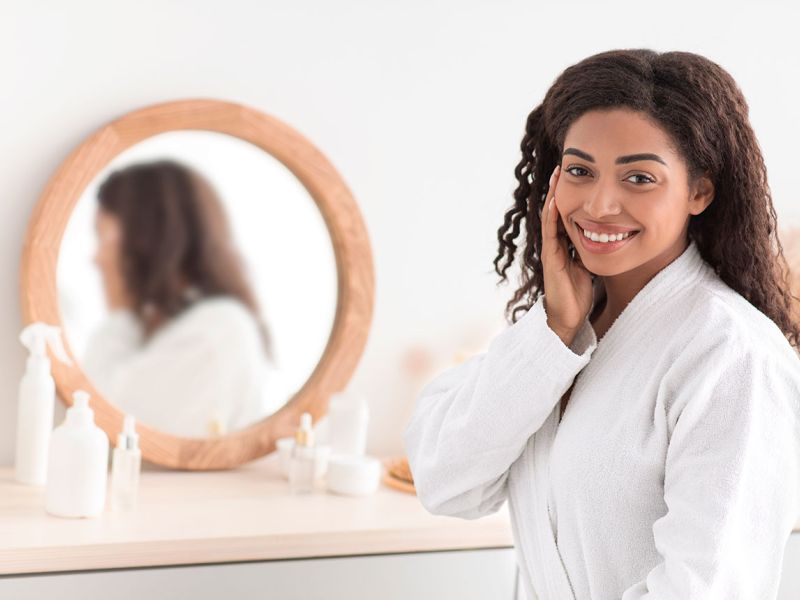The Role of Stress in Skin Health: Managing Your Complexion in High-Pressure Times
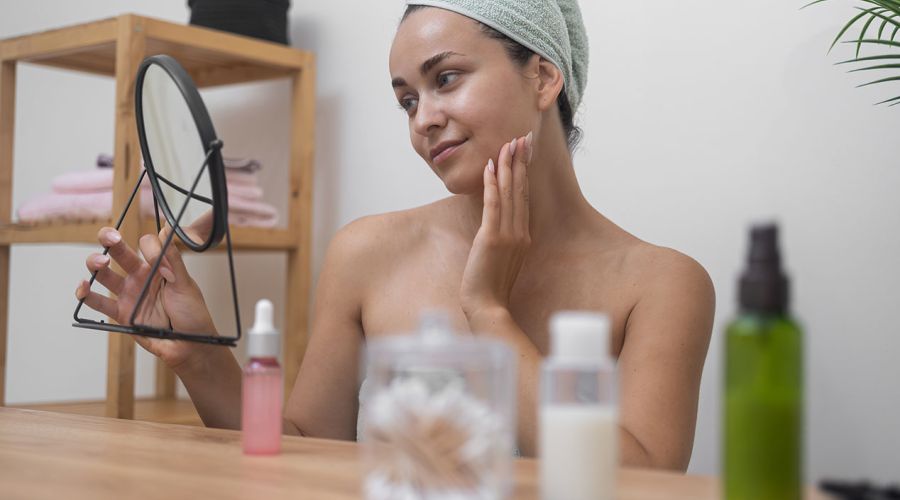
In today’s fast-paced and highly demanding world, stress has become a common experience for many of us. We often hear about the negative impact of stress on our mental well-being, but did you know that it can also affect our skin health? The relationship between stress and our complexion is fascinating, and understanding it can help us better manage stress and maintain healthy, radiant skin. In this blog post, we will delve into the role of stress in skin health and provide practical tips for managing stress to keep your complexion glowing even in high-pressure times.
Understanding the Effects of Stress on Skin Health
To comprehend how stress impacts our skin, we need to explore the science behind it. Stress is one of the major causes in our body to release the hormone cortisol. This hormone triggers various physiological responses, including increased sebum production. Sebum is the natural oil that keeps our skin moisturized. However, when there is excess production of sebum due to stress, it can lead to oily skin and clogged pores, resulting in acne breakouts.
Moreover, elevated cortisol levels can disrupt the skin’s barrier function, making it more prone to inflammation and irritation. This can cause existing skin conditions, such as eczema and psoriasis, to flare up and exacerbate the symptoms. Additionally, chronic stress can impair the healing process of wounds and contribute to premature aging by accelerating the breakdown of collagen and elastin, the proteins responsible for maintaining skin elasticity and firmness.
How Stress Can Cause Hyperpigmentation?
While talking about the relation of stress with hyperpigmentation of the skin it’s rather slow and gradual. The process through which our skin (t The most sensitive part of our body) becomes darker than the surrounding skin by producing excess melanin is known as hyperpigmentation. Normally, our body releases a hormone called cortisol while experiencing stress which then triggers a series of events leading to an increase in melanin production paving the way for hyperpigmentation. But that’s not all. Moreover, chronic stress can lead to inflammation in the body, which amplifies the appearance of dark spots and uneven skin tone. So, the relationship between stress and hyperpigmentation is very mutual as high stress level is linked with financial issues, work pressure, and other factors leading to hyperpigmentation. So, it’s very important to maintain stress levels to improve overall health and even skin tone.
Tips for Managing Stress and Keeping Your Skin Healthy
Now that we understand how stress affects our skin, let’s explore some practical tips for managing stress and maintaining a healthy complexion:
Lifestyle Changes:
Prioritize self-care by incorporating regular exercise, maintaining a healthy diet, and getting enough sleep. Engaging in physical activity can help reduce stress levels, while nourishing your body with a balanced diet and adequate sleep promotes overall well-being, including skin health.
- Regular Exercise:
Engaging in physical activity helps reduce stress levels and improves blood circulation, promoting a healthy complexion. Aim for at least 30 minutes of exercise, such as brisk walking, yoga, or dancing, on most days of the week.
- Balanced Diet:
Eat a diet high in fruits, vegetables, whole grains, and lean proteins to nourish your body. These meals are rich in nutrients and provide vital vitamins and minerals that promote healthy skin. Additionally, avoid excessive consumption of sugary and processed foods, as they can contribute to skin inflammation.
- Adequate Sleep:
Sleep deprivation can increase stress levels and negatively impact your skin. For your body and skin to heal, try to get between seven and nine hours of good sleep every night.
Relaxation Techniques:
Explore relaxation techniques such as deep breathing exercises, meditation, and yoga. These practices can help calm the mind and reduce stress levels, consequently benefiting your skin.
- Deep Breathing Exercises: Take slow, deep breaths, focusing on the inhale and exhale. This practice can help calm your mind and reduce stress levels.
- Meditation: One can make a daily routine by setting aside a few minutes each day to practice mindfulness meditation. Find a quiet space, sit comfortably, and focus on your breath or a specific focus point. It is a well-known fact that practicing meditation can help reduce stress and promote emotional well-being.
- Yoga: Apart from its physical benefits, practicing yoga can help reduce stress by focusing on breathing, stretching, and mindfulness. Consider attending a yoga class or following online tutorials to incorporate this beneficial practice into your routine.
Skincare Practices:
Establish a regular skincare routine that includes gentle cleansing, moisturizing, and protection from the sun. Look for skincare products with ingredients like hyaluronic acid and antioxidants, which can help hydrate and protect your skin from environmental stressors.
- Gentle Cleansing: Use a mild, non-abrasive cleanser to remove dirt, excess oil, and impurities from your skin without stripping away its natural moisture. Scrubbing too vigorously can irritate the skin.
- Moisturize: Apply a moisturizer suitable for your skin type after cleansing to help maintain hydration levels and support the skin’s barrier function. Look for ingredients like hyaluronic acid and ceramides to boost moisturization.
- Sun Protection: Protect your skin from harmful UV rays by using a broad-spectrum sunscreen with at least SPF 30. Sun exposure can worsen the effects of stress on the skin and contribute to premature aging.
Mindfulness Exercises:
Practice mindfulness by being present at the moment and focusing on the sensations of your body. This can help alleviate stress and promote a sense of relaxation, ultimately benefiting your skin.
Other Factors That Affect Skin Health
While stress is undoubtedly a key factor in skin health, it’s essential to consider other external factors as well. Environmental pollution, exposure to UV radiation, and poor lifestyle choices such as smoking can all have detrimental effects on our skin. Therefore, a holistic approach to skin health is crucial.
To counteract these external factors, ensure you cleanse your skin thoroughly to remove pollutants and use sunscreen to protect against harmful UV rays. Additionally, avoid smoking and prioritize a healthy lifestyle to support your skin’s overall well-being.
To protect your skin from these external stressors, consider the following:
Cleansing after exposure to pollution: If you live in a highly polluted area or have been exposed to pollutants, cleanse your skin thoroughly to remove any accumulated dirt and toxins.
UV Protection: Besides using sunscreen, wear protective clothing, such as hats and sunglasses, and seek shade during peak sun hours to minimize UV exposure.
Healthy Lifestyle Choices: It is a given to avoid smoking and limit alcohol consumption, as these habits can negatively impact skin health and accelerate the aging process. Instead, focus on maintaining a balanced lifestyle that supports overall well-being.
In conclusion, stress plays a significant role in skin health, causing various skin problems and exacerbating existing conditions. By understanding the effects of stress on our skin and implementing effective stress management strategies, we can maintain a healthy complexion. Prioritizing self-care, practicing relaxation techniques and mindfulness exercises, as well as adopting a proper skincare routine, can all contribute to healthier skin.
Remember, skin health is not just about addressing external factors, but also taking a holistic approach that encompasses physical and mental well-being. By managing stress effectively, we can not only improve our skin’s health but also enhance our overall quality of life.
So, let’s make stress management a priority and give our skin the care it deserves. Your complexion will thank you!
Other Recent BLogs
-
 Melasma Treatment, Causes And Prevention
Melasma Treatment, Causes And Prevention -
 Different Types Of Acne
Different Types Of Acne -
 What are the various steps for Laser Tattoo Removal?
What are the various steps for Laser Tattoo Removal? -
 Acne Treatment and Truth about Chemical Peel
Acne Treatment and Truth about Chemical Peel -
 Skin Care for All Seasons, Adjusting Your Routine to Weather’s Whims
Skin Care for All Seasons, Adjusting Your Routine to Weather’s Whims -
 The Role of Stress in Skin Health: Managing Your Complexion in High-Pressure Times
The Role of Stress in Skin Health: Managing Your Complexion in High-Pressure Times -
 Understanding the Differences Between Teen and Adult Acne: A Guide from Elara
Understanding the Differences Between Teen and Adult Acne: A Guide from Elara -
 Should I Stop Using Moisturizers and Sunscreen Because I Have Acne-Prone Skin? Skincare Routine for Acne-Prone Skin
Should I Stop Using Moisturizers and Sunscreen Because I Have Acne-Prone Skin? Skincare Routine for Acne-Prone Skin

